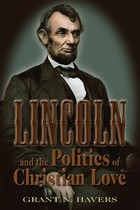
Bernard Brady has given us a rare, delightful, and thought-provoking book—a volume that belongs on the desk or the bed-stand of anyone in search of the rich and varied dimensions of Christian love. Christians are taught that God is love and are commanded to love, their neighbors and their enemies. These truths are not controversial. What is controversial and, indeed, has been controversial throughout the history of Christianity is the meaning of this love. This book explores the tradition of Christian reflection on the meaning, and experience of love, loving, and being loved.
Many books have been written about Christian love, but no book has gathered together this kind of primary source material and covered such a wide range of perspectives, allowing the reader to engage directly with the thought and experience of some of the greatest Christian minds on the topic of love. Bernard Brady covers with remarkable clarity the breadth and depth of discussions on Christian love from the Bible to contemporary experience to create this-a survey of how Christians through the ages have understood love.
Beginning of course with the Bible, Brady examines the key writings and thinkers on the nature of Christian love: St. Augustine; mystics such as Bernard of Clairvaux, Hadewich, and Julian of Norwich; the great tradition and literature of courtly love, Thomas Aquinas, Martin Luther, Sören Kierkegaard, and others. In addition, Brady devotes chapters to several 20th century figures whose lives seemingly embodied Christian love: Mother Theresa, Martin Luther King, Jr., and Pope John Paul II. Finally, Christian Love addresses contemporary deliberations over the meaning of love with an analysis of the modern writings of Martin D'Arcy, Reinhold Niebuhr, Jules Toner, Gustavo Gutiérrez, Gene Outka, Margaret Farley, Edward Vacek, and Don Browning. In a synthesizing concluding chapter, Brady offers his own insightful and introspective understanding of the substance of Christian love, suggesting that it is an affective affirmation of another, that it is both responsive and unitive, and that it is steadfast and enduring.
As a beautiful contemplative companion to one's own spiritual understanding, or as a thoughtful and meaningful gift, Christian Love is in every sense a treasure to behold, read, and share with those you love.

In this provocative book, Grant Havers argues that charity is a central tenet of what Lincoln once called America’s “political religion.” He explores the implications of making Christian love the highest moral standard for American democracy, showing how Lincoln’s legacy demands that a true democracy be charitable toward all—and that only a people who lived according to such ideals could succeed in building democracy as Lincoln understood it.
Havers argues that it is simplistic to conflate Lincoln’s invocation of “with charity for all” with his abiding support for the ideal of human equality. The ethic of charity in his view also brought a uniquely Christian realism to the universalism of democracy. He also describes how, since World War I, intellectuals and political leaders have denied that there exists a necessary relation between democracy and Christian love, proposing that democracy is sufficiently ethical without reliance on a specific religious tradition. Today’s neoconservatives and liberals instead posit a universal yearning for democracy that requires no foundation in the ethic of charity. Havers shows that this democratic universalism, espoused by those who believe a “chosen people” should uphold the natural rights of humanity, is alien to the sober thought of both the founders and Lincoln.
This carefully argued work defends Lincoln’s understanding of charity as essential to democracy while emphasizing the difficulty of fusing this ethic with the desire to spread democracy to people who do not share America’s Christian heritage. In considering the prospect of America’s leaders rediscovering a moral foreign policy based on charity rather than the costly idolization of democracy, Lincoln and the Politics of Christian Love makes a timely contribution to the wider debate over both the meaning of religion in American politics and the mission of America in the world—and opens a new window on Lincoln’s lasting legacy.
READERS
Browse our collection.
PUBLISHERS
See BiblioVault's publisher services.
STUDENT SERVICES
Files for college accessibility offices.
UChicago Accessibility Resources
home | accessibility | search | about | contact us
BiblioVault ® 2001 - 2024
The University of Chicago Press









